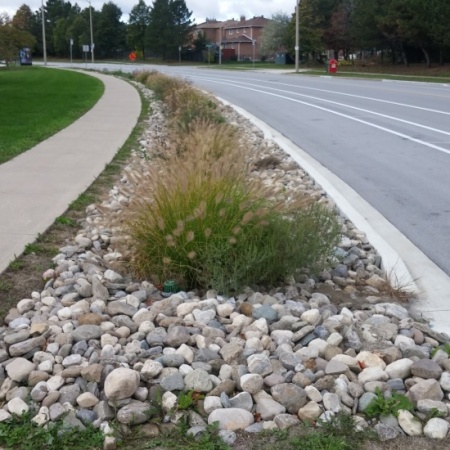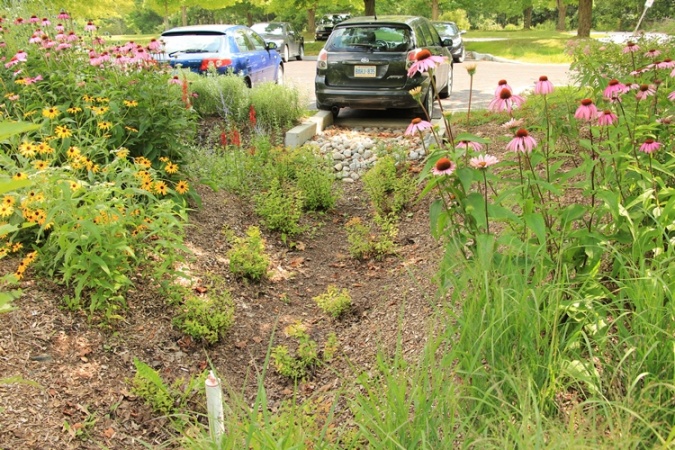Difference between revisions of "Swales"
Jump to navigation
Jump to search
Jenny Hill (talk | contribs) |
Jenny Hill (talk | contribs) |
||
| Line 111: | Line 111: | ||
<td class="text-center"><i class="fa fa-envelope-open-o"></i> [[Special:SpecialContact|<strong>SEND US YOUR QUESTIONS & FEEDBACK ABOUT THIS PAGE</strong>]]</td> | <td class="text-center"><i class="fa fa-envelope-open-o"></i> [[Special:SpecialContact|<strong>SEND US YOUR QUESTIONS & FEEDBACK ABOUT THIS PAGE</strong>]]</td> | ||
</table> | </table> | ||
[[Category:Infiltration]] | |||
[[Category:Planted]] | |||
Revision as of 13:32, 22 June 2017
This article is about planted installations designed to capture and convey surface runoff through an engineered soil with subterranean infrastructure.
For node type systems, see Bioretention Cells.
Overview[edit]
Bioswales are the
Bioswales are an ideal technology for:
- Sites with long linear landscaped areas, such as parking lots
- Connecting with one or more other types of LID
The fundamental components of a bioretention cell are:
- Biomedia - an engineered soil mix
- Planting -
Additional components may include:
- Impermeable membrane to prevent infiltration to soils below
- Check dams
Planning Considerations[edit]
Planning Content
Design[edit]
Design Content
<panelSuccess>
</panelSuccess>
Performance[edit]
Performance Content
Incentives and Credits[edit]
In Ontario
City of Mississauga
The City of Mississauga has a stormwater management credit program which includes RWH as one of their recommended site strategies[1].
LEED BD + C v. 4
SITES v.2
See Also[edit]
External Links[edit]
| SEND US YOUR QUESTIONS & FEEDBACK ABOUT THIS PAGE |

